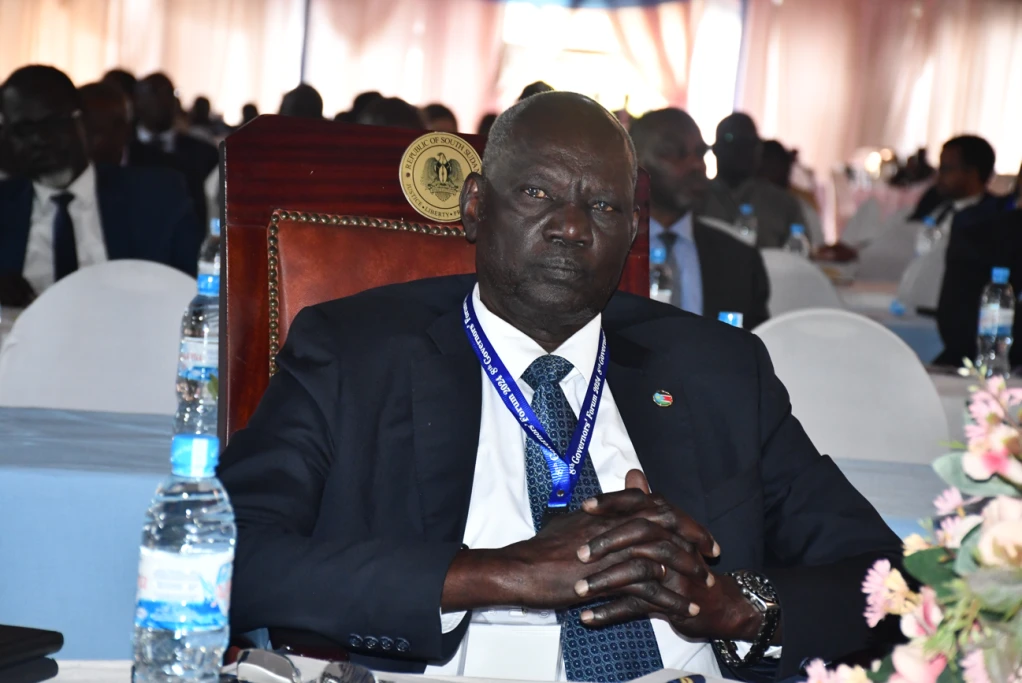
In response to the increasing public dissatisfaction with telecommunications tariffs, the minister of Information, Communication Technology, and Postal Services has stated that the issue is the decline in the pound, rather than the telecom companies.
Despite public outcry, Michael Makuei defended the adjustments during the 8th Governors’ Forum on Wednesday, attributing any perceived increases to fluctuations in the exchange rate rather than deliberate price hikes by telecom operators.
“Frankly speaking, South Sudan tariffs are the lowest in the region. We charge 0.4 cents per minute. Before, when our currency was strong, we did not feel it. But when our currency fell, the exchange rate affected the tariffs," Makuei said.
"So, the problem is, we have not increased the charges, but in the exchange rate; it is the weakness of our currency that brought us all these problems."
Since September 2022, telecommunications companies such as MTN, Zain, and Digitel, in agreement with the National Communication Authority, have been adjusting their tariffs to match the fluctuating exchange rates.
The operators have stated that their pricing aligns with the official exchange rate, emphasizing their commitment to service quality and digital transformation.
“As long as the currency continues, they will continue all the time to pay according to the bank rate. When our currency gains power and it gains momentum, the rates will automatically also begin to fall,” Makuei stated.
However, these adjustments have sparked public outcry, with many citizens raising concerns about increased costs for essential services like internet and mobile connectivity.
Makuei also urged restraint in the use of telecom services, suggesting that users who overspend on prolonged calls may be misinterpreting charges as overpricing.
“So, if you or anybody is complaining, you better refrain from using the telephone. Yes, because it is not compulsory. You feel that you are being overcharged, you better refrain from using it,” the minister argued.
The minister acknowledged the operational difficulties faced by telecom providers, particularly in rural areas where maintaining towers is economically unviable.
“We had two options. Either we tell the companies to close down, or we let them continue in accordance with the bank rate. And we opted that the better, that we continue with them and they are paid according to the bank rate.”
Makuei encouraged citizens to report any issues with telecom operators to the National Communications Authority or the ministry, underscoring the government’s commitment to addressing public concerns.